19 best science books for kids and young adults
Looking to inspire the next generation of curious minds? These are our picks of the best popular science books for children of all ages.
Whether they are a young Marie Curie or Albert Einstein, a budding botanist, cuckoo for chemistry or simply looking for something new and exciting to read over the summer vacation, if there is one thing we know about our young Live Science readers, it's that they love a good science book.
With the help of our sister magazine "How It Works," we've pulled together some of the best science books for kids of all ages, which should keep their young minds fizzing with ideas long into the future.
To make things easier, we've grouped them into two sections: one featuring books for children under 10 years old, and the other books for older children and young adults. They are all books that have been released recently, but if there are any that you think we have missed then please let us know on social media (here's where you can find us), or ping us an email at community@livescience.com.
Best science books for kids under 10 years old
How to Explain Robotics to a Grown-up
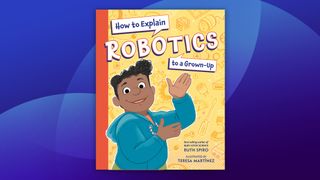
Author: Ruth Spiro
Illustrator: Teresa Martinez
Publisher: Charlesbridge Publishing
Price: Available on Amazon for $17.99
Release date: Sept. 17, 2024
Part of the "How To Explain" book series, this latest installment teaches children how to explain the mechanical world of robotics to their parents. The book follows a confident young boy and his curious mother, as he explains the basic components and principles that make a robot.
The inquisitive duo go on a journey of discovery through their home to a robotic expo, to uncover the science behind different robots and understand how they use technology to complete tasks. The story outlines the three main principles of robotic coding: Sense, Compute and Act, and delves into how the three work together to create a robot.
A charming feature of this book series are the handy 'pro tips' on how to help adults understand the subject, while simultaneously imparting learning skills to the young reader. For example, "Unlike robots, humans sometimes need a break! A snack and a little humor may be just what your grown-up needs to stay focused and ready to learn."
Related: Check out the best laptops for coding and programming you can get right now
Pet selector!
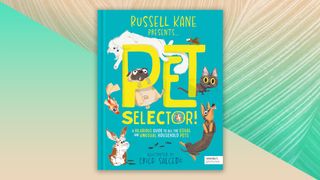
Author: Russell Kane
Illustrator: Erica Salcedo
Publisher: words and pictures
Price: Available on Amazon for $24.99
Release date: Out now
In this charismatic guide to pets, comedian turned pet detective Russell Kane lends a comedic helping hand to those looking to bring a new furry friend into the family. Focusing mostly on breeds across the feline and canine kingdoms, Kane introduces his young readers to the various personalities and behaviors of commonly considered pets. He uses a handy key to rate their qualities, such as intelligence, playfulness and neediness.
Helpful advice aside, Kane has also explored the origins of our furry friends, which some readers may find surprising. For example, French bulldogs, not from France, were bred by British lace-makers in the 1800s to ward off pests, and Shih Tzu or 'little lions' were Buddhist monks’ companions, who sometimes slept in their sleeves.
Although cats and dogs are featured heavily in the book, there is also a menagerie of other animals such as rabbits, rodents and reptiles to consider. Along with being helpful and humorous, this book is full of entertaining illustrations that bring each pet's personality to life, from easy-going Persian cats to ball-crazed Jack Russell terriers.
Related: Do any animals keep pets like humans do?
Our Earth
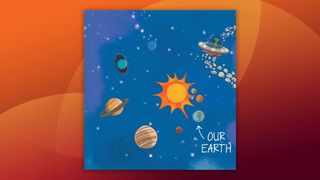
Author: Jane Calame
Illustrator: Daniela Frongia
Publisher: Atmosphere Press
Price: Available on Amazon for $17.95
Release date: Out now
The declining state of the natural world is dire, making it an essential issue for us to be knowledgeable about. But the future of Earth doesn’t have to be a negative one. This rhyming children’s book contains vibrant and cheerful illustrations as it explains the planet we live on.
By providing ideas for ways in which we can all look after Earth in a conversational and child-friendly manner, "Our Earth" is the perfect book for budding environmentalists or indeed any member of the next generation. The delightful illustrations and memorable rhymes make the underlying message in this book a simple one, and children ages three to eight will enjoy reading it.
Whether you choose to walk and ride your bike to school, or you’re sorting your rubbish into recyclable materials, "Our Earth" teaches the reader that we can all play a part in shaping the future of the planet, no matter how small the action or how young the person.
Stomp, Soar, Dino Roar
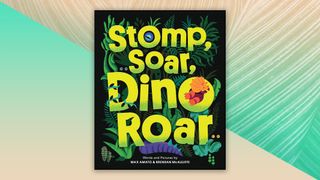
Author: Max Amato and Brendan McAuliffe
Illustrator: Nathan Reed
Publisher: Sourcebooks Explore
Price: Available on Amazon for $18.99
Release date: Oct. 1, 2024
In an immersive short story for young readers, the dinosaurs of the Cretaceous period are introduced through colorful cartoons and sounds. You will explore the world in this ancient era with newborn Triceratops Terri, as she encounters new species for the first time, too.
Each illustration enables the reader to visualise how every dinosaur would engage with its surroundings and — most importantly in "Stomp, Soar, Dino Roar" — its echoing sounds. The text’s size, shape and design helps readers to recreate the style of each sound, and phonetic spellings break down the complicated dinosaur names beneath the main text.
Hear from dunking, water-loving dinosaurs and dueling competitors as the rhymes become an entertaining and fast-paced tour. At the end of "Stomp, Soar, Dino Roar," you get more information about each dinosaur mentioned, with useful fact files and illustrations to show the size of each in comparison to a human. More thorough information about how we know what each dinosaur may have sounded like — through fossils and the analysis of living relatives — is included at the back of the book, as well as a timeline to visualise how long ago animals like Terri graced the Earth.
Read more: A brief history of dinosaurs
A Kid's Guide to the Night Sky
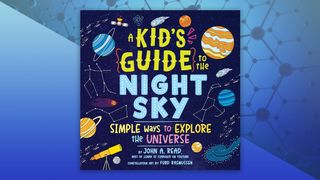
Author: John A. Read
Publisher: Sourcebooks
Price: Available on Amazon for $16.99
Release date: Nov. 11, 2024
The night sky is filled with countless cosmic objects to explore and this book does its best to introduce a whole heap of them to the next generation of astronomers. From the little bear to the mighty dragon, there are many glinting constellations and bright stars to identify with the help of "A Kid's Guide to the Night Sky."
However, this book offers so much more for science-minded stargazers. The life cycle of stars, conjunctions and light pollution are just a few of the topics that his book introduces to its audience. It also takes a deep dive into each of the solar system's planets and some of the amazing technology that's working to find out more about them.
With so many constellations, satellites and comets to discover, this easy-to-follow guide offers helpful tips and tricks to make sense of what's in space.
Read more: Best telescopes for beginners and advanced scopes for stars, galaxies and nebulas
Doodle with Duddle: How to Draw Dinosaurs
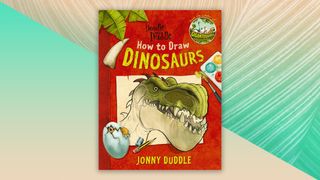
Author: Jonny Duddle
Illustrator: Jonny Duddle
Publisher: Templar
Price: Available on Amazon UK for £8.99 (approx $11.64)
Release date: Out now
Would you like to be able to draw cartoon dinosaurs? Draw them really well? If you put in a lot of practice with the lessons that Jonny Duddle teaches, you could!
The author and illustrator of "How to Draw Dinosaurs" is a self-proclaimed "doodler," which is a very modest way of saying he’s a cartoon artist — and a very good one, at that. Duddle begins to take the reader through his dinosaur-drawing methods by listing the basic equipment: "just a pencil to start," although he does have his favorite tools of the trade that include a sketchbook and a ballpoint pen — not an advisable drawing implement for mistake-prone beginners.
He then introduces us to a quartet of his own, made-up dinosaur-like characters who assist in the lessons, and then readers get to start drawing some (mostly) real dinosaurs.
Duddle alternates between pages of dinosaur facts with finished dinosaur illustrations, and step-by-step lessons on how to draw them in his style. It’s often a case of building layers on top of a basic shape — such as the ellipse that forms the body of a diplodocus. The section on dinosaur skeletons, which includes a step-by-step illustration of how fossils form, is a particularly vibrant chapter that gives the budding artist a sense of the internal structure of a dinosaur and some shapes that they can start to build their own dinosaur drawings around.
Finally, for those who have advanced in their dino-doodling and have the confidence to go it alone, there’s space in the back of the book to draw their own fantasy dinosaur and a comic strip of their own doodles.
But even if the reader has no interest in trying any of Duddle’s drawing lessons, "How to Draw Dinosaurs" is a fun read for school-aged students, accompanied by captivating cartoon dinosaurs. At the very least, it’s a good drawing reference for a future school dinosaur project or art homework.
Related: If birds are dinosaurs, why aren't they cold-blooded?
The Ultimate Kids’ Guide to Dogs

Author: Graeme Hall
Illustrator: Alice Tait
Publisher: Penguin Books
Price: Available on Amazon for $19.99
Release date: Out now
If you have a pet dog, or if you call yourself a "dog person," this book is the ideal introduction to their history, biology, behaviour and communication. The author’s engaging style guides young readers through all aspects of this popular pet, from their animal ancestors to the emergence of dogs 14,200 years ago.
Across each page are vibrant illustrations showing uplifting scenes of human-dog interaction. The timeline details how dogs have been helping humans for thousands of years — how humans have mistreated them, but also how work has been carried out to keep dogs protected.
Throughout "The Ultimate Kids’ Guide to Dogs" you will learn about the many jobs dogs have been selectively bred for, as well as the biology and behaviors of different breeds in the dog fact files. If you have a new puppy in your family, this is the perfect way to get to know them better. A visual timeline of a dog’s growth details what to expect from your new best friend, while the body language guide will explain what your pet is trying to tell you.
"The Ultimate Kids’ Guide to Dogs" is a brilliant blend of information and interaction. After absorbing the facts, use the dog training guide to test new tricks on your dog and — at the end of the book — test your knowledge in the ultimate dog quiz.
Related: Do any animals keep pets like humans do?
The World’s First Rollercoaster and Other Amazing Inventions
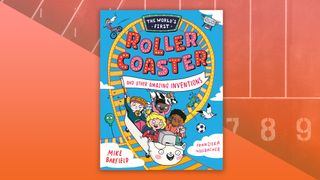
Author: Mike Barfield
Illustrator: Franziska Höllbacher
Publisher: Templar
Price: Available on Amazon for $19.98
Release date: Out now
You can’t go far wrong with cool facts and funny comic strips, so author/illustrator dream team Mike Barfield and Franziska Höllbacher are off to a pretty good start with "The World’s First Rollercoaster and Other Amazing Inventions." It charts the greatest inventions from the last century or so — but when we say "greatest," we don’t necessarily mean the inventions that have significantly furthered our species.
Instead, fun inventions like the rollercoaster, the hamburger, skateboards and video games take precedence over the likes of electric vehicles and smartphones. This is where Mike and Franziska can have the most fun. There’s a full-page comic strip for every item on the contents page, giving a potted history of the people behind the invention and their world-famous ideas.
There’s a full-page comic strip for every item
ome of those ideas are a little more out-there — like the "invention" of the dog, which was domesticated over the course of the last 10,000 years or so, the history of which has been distilled into a single silly, yet informative, comic strip. But even the more conventional inventions have been injected with good humor and an interesting angle.
For instance, instead of telling us how Carl Friedrich Benz built the world’s first petrol-drive automobile in 1885, Barfield veers slightly off that course to talk about Benz’s wife, Bertha, who achieved her own world-firsts with Carl’s invention and without whom we wouldn’t even know the name “Benz” in the world of motoring.
If you want to learn more about that, you’ll just have to read the book — we promise you it’s well worth it. "The World’s First Rollercoaster and Other Amazing Inventions" is as amusing as it will be interesting to anyone of any age, and by the end you’ll be sure to have learned a thing or two about some of your favorite inventions.
Related: 32 weird technologies that never took off
Your Sustainable World

Author: Laura Perdew
Publisher: Capstone Press
Price: Available on Amazon for $9.99
Release date: Aug. 1, 2024
It's safe to say that children have never been more aware of the impact that climate change is having on the world — and with that awareness come countless questions about how families can play their part in protecting the planet. In this simple guide to sustainable living, children will learn about different climate challenges, as well as some of the small ways in which we can help reduce our negative impact on the environment.
Along with well-known concepts in sustainability such as "the five R's" (reduce, reuse, recycle, repurpose and refuse), there are new ways of being greener to explore, such as "green fashion" and "smart eating." Packed with helpful tips and advice, "Your Sustainable World" is sure to inspire children to make more environmentally friendly choices.
Related: 15 unexpected effects of climate change
Respect the Insect
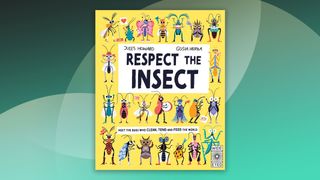
Author: Jules Howard
Illustrator: Gosia Herba
Publisher: Wide Eyed Editions
Price: Available on Amazon for $22.99
Release date: Out now
In this amusing, factual and engaging book, young readers are introduced to the insect world in a visual way, to help understand each creature’s importance.
Each insect is personified by a cartoon character who will explain their daily role in the environment. Let the critters welcome you into their home for a grand tour, detailing how they built their homes and some of the ways their actions are misunderstood.
From plastic problem-solving wax moth caterpillars to earth-moving termites and honey-making bees, each page will show you a new animal in action. One section reveals the prevalence of insects around the globe, from desert dwellers to the insects that need to live in conditions so cold that if you touched them, they would die from exposure to your body heat.
Wherever you live in the world, this book ensures that the next time you come across one of these species, you will have more respect for the insect.
Related: How do insects know which flowers have pollen?
Best science books for older children and young adults
Space: From Sputnik to the International Space Station
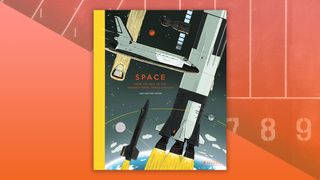
Author: Jan van der Veken
Illustrator: Jan van der Veken
Publisher: Prestel Junior
Price: Available on Amazon for $24.99
Release date: Sept. 3, 2024
The story of humankind’s ventures into space, from unmanned spacecraft and our first tentative test flights in the 1950s to today’s International Space Station missions, is replete with incredible tales of technological feats and individual heroism.
Take the story of John Stapp, for example, which sets the standard for "Space," the latest transport book by writer and illustrator Jan van der Veken. Stapp was a test pilot who built a rocket sled to assess the effects of sudden, massive acceleration and deceleration on the human body. He was strapped into his sled by assistants before he hit the ignition button and went from zero to 620 miles per hour in just five seconds, then back to zero in an even snappier 1.4 seconds. Dozens of these human test runs left him with broken ribs, broken wrists and bruised eye sockets, but Stapp survived and the data from these experiments were invaluable to the safety systems incorporated into future space missions.
From one double-page spread to the next, "Space" takes us through some of the biggest milestones in space travel. Following on from Stapp’s exploits, we head into the first human spaceflight, the Moon landings, Skylab (the first US space station) and the Space Shuttle program. Between these historical waypoints, van der Veken explains the technology that got us there — the rockets, space suits and ground vehicles without which future astronauts would have been left to stare dreamily into the sky — and more incredible stories of human endeavor, such as the time Sergei Krikalev was stranded on the Russian space station Mir for six months, after the fall of the Soviet Union.
Like the other books in his transport series, "Space" is also gorgeously illustrated by van der Veken, and the retro, Tintin-style drawings of astronauts and ground crew in action around iconic spacecraft suit this book to a tee: Hergé would be proud. "Space" is recommended for ages 10 and upwards, but we think its eye-candy alone would appeal to just about anyone.
Amazing Jellyfish
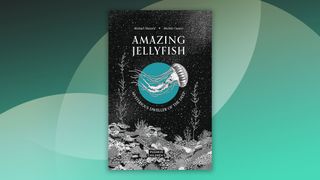
Author: Michael Stavaric
Illustrator: Michèle Ganser
Publisher: Pushkin Children's Books
Price: Available on Amazon for $27.00
Release date: Oct. 1, 2024
Take the plunge into the marine world with this engaging and interactive guide to the mysterious lives and environment of jellyfish. "Amazing Jellyfish" is expertly written for 8- to 12-year-olds but contains plenty of impressive facts and statistics that would amaze much older readers.
The first-person style from the author helps to maintain the attention of young readers, by including personal anecdotes and avoiding packed pages of overwhelming text. There is a perfect balance of information and visual elements for confident readers, as each section is split into sophisticated sketches and a mixture of writing styles. The book also contains fact files of some of the most poisonous animals, a list of jellyfish-themed jokes, an interactive maze through marine litter and detailed life cycle illustrations.
Even if you have an idea of what life as a jellyfish might look like before reading this book, "Amazing Jellyfish" may introduce you to a much more fascinating and highly diverse world of the jellies.
Related: 13 of the most venomous sea creatures lurking in the water
Astrophysics for Supervillains
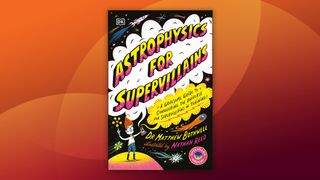
Author: Dr. Matt Bothwell
Illustrator: Nathan Reed
Publisher: DK
Price: Available on Amazon for $12.99
Release date: Out now
Taking plenty of cues from the bestselling "Horrible Histories" series, "Astrophysics for Supervillains" is a children’s book of space facts that moves space education beyond what a typical 9-year-old might learn in their classroom. And as long as there’s other stuff on the school curriculum, like English or Geography, there’s no chance of the teacher finding time to derail the learnings of a supervillain-in-training.
Author and astronomer Dr. Matt Bothwell steps up to the role of evil genius and takes us through six meaty chapters of space facts, from the relatively ordinary confines of our own solar system to the end of a star’s life, the heat death of the universe and, our favorite, "How to Destroy the Earth" — a list of the various cosmic fates to which Earth may finally succumb, however unlikely those might be.
Weaves around tough answers that might require an actual PhD to unpick
Every chapter can effectively be split into a series of questions that might typically be asked by a school student of a certain age, such as "How long could you survive on Pluto?", "What is inside a black hole?" and "If the universe is growing, what is it expanding into?". These questions are comprehensively answered by Dr. Bothwell in his best supervillain professor voice, reveling in the extreme dangers posed by the space beyond our little bubble of atmosphere, and the apocalyptic scenarios that we might encounter if we could travel millions of light years from Earth and live a few billion years or more.
Dr. Bothwell is the public astronomer at the University of Cambridge’s Institute of Astronomy, so engaging a school-age audience is all in a day’s work — and "Astrophysics for Supervillains" is no exception. It cleverly weaves around tough answers that might require an actual PhD to unpick, coupling them with plenty of cartoon illustrations and the kind of choice typography that makes a good comic strip.
All told, this is a really fun insight into the cosmos that could inspire future generations of astronomers.
Cloudspotting for Beginners
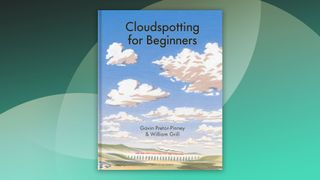
Author: Gavin Pretor-Pinney
Illustrator: William Grill
Publisher: Particular Books
Price: Available on Amazon for $24.99
Release date: Out now
If the ever-changing sky and shape-shifting patterns of clouds have ever piqued your interest, this is the book for you. Those fluffy objects floating in the atmosphere are immensely complex, and each form of cloud has a specific classification, produces intriguing phenomena and exists only at favourable altitudes. "Cloudspotting for Beginners" introduces you to each type of cloud, often giving them a poetic personality to remember them by.
Just like the act of skywatching itself, reading this book has a calming effect, as each cloud type and phenomenon is presented with elegant sketches that beautifully capture the intricacies and moods of different skies. You will learn about the 10 main cloud types, positioned on the page at the altitudes where you can spot them. Artistic graphs detail the science of cloud formation, the anatomy of rainbows, halos formed by clouds’ crystals and the appearance of clouds on other planets.
How were clouds named, which weather pattern is each cloud type linked to and what clouds capture a sunset? The answers to all these questions and more are revealed in "Cloudspotting for Beginners."
A Brief History of Stuff
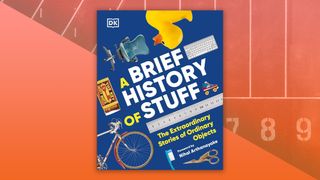
DK has selected a truly eclectic list of "stuff" for inclusion in this curiously put-together book. From baby bottles to ballpoint pens, there isn't much of a logical path or timeline — which, oddly, is part of what makes it a brilliant reference for kids of all ages.
Casting your eye over the contents page and seeing a list of everyday items such as a thimble or a fridge magnet, you're left realising there's a gap in your knowledge about how all these things came to be. Luckily, "A Brief History of Stuff" has all the information you need about their origins and impact on society.
Packed with bitesize facts, before you know it you'll be reciting the history of "stuff" to your friends and family.
Read more: 20 inventions that changed the world
The Pocket Calculator Story
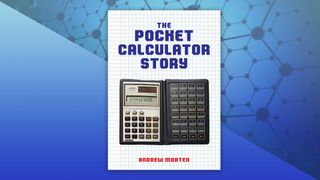
Author: Andrew Morten
Publisher: Amberley Publishing
Price: Available on Amazon for $25.99
Release date: Out now
These days, calculators have mostly been relegated to a smartphone or desktop app. However, this piece of electronic math wizardry has a history that is long and varied, as will become abundantly clear to readers of "The Pocket Calculator Story."
From the key invention of the transistor in the 1960s, you'll follow the evolutionary journey of the humble pocket calculator and watch it transform into a feature-packed mini-computer, capable of making short work of complex equations. You'll also discover the many weird and wonderful calculators that broke the mold, such as the calculator-pen hybrid, the credit card calculator and the iconic calculator watch that dominated the 1980s.
Offering a dose of tech nostalgia, this makes an excellent reference book for any personal electronics enthusiast.
Related: Best laptops for students 2024: Get the perfect laptop for college
What If Fungi Win?

Author: Arturo Casadevall
Publisher: Johns Hopkins University Press
Price: Available on Amazon for $16.95
Release date: Out now
Arturo Casadevall is a professor of molecular microbiology and immunology at the Johns Hopkins School of Medicine, and the author of "What if Fungi Win?" — an insightful look at how fungi facilitated evolution and benefited the global biome, but how they could also be the downfall of civilization.
Drawing on his own research and experience, Casadevall describes the fascinating biology behind fungi, including their amazing powers of radiation resistance and healing abilities. There's an important cautionary tale in "What If Fungi Win?", too: In a post-Covid world, Casadevall shares the importance of tackling infectious fungi and warns about the rise of drug-resistant species.
By the time you've finished this fascinating and eye-opening book, you'll surely have gained a new appreciation for fungi — along with a cautious side-eye.
50 Women in Technology

Author: Georgina Ferry, Inês Nobre de Almeida and Bridget Greenwood
Publisher: Supernova Books
Price: Available on Amazon for $29.99
Release date: Out now
In a celebration of the female pioneers that have helped advance technology throughout history, "50 Women in Technology" is sure to inspire the next generation of brilliant scientists. Along with some of the more recognisable names such as Katherine Johnson or Marie Curie, there are many unsung heroes of science to discover, such as Vera Rubin, whose work led to the discovery of dark matter.
In part, this reference book acts as a reminder of the great women whose work paved the way for modern minds. For example, Stephanie Willerth, a professor at the University of Victoria in Canada, oversees research to engineer treatments for central nervous system disorders, while data scientist Rumman Chowdhury is tackling solutions for ethical artificial intelligence. These are just some of the minds that you'll meet through a series of interview-based biographies that reveal the motivations of women who are making strides in technology.
Related: 25 amazing women in science and math
Radar and the Raft
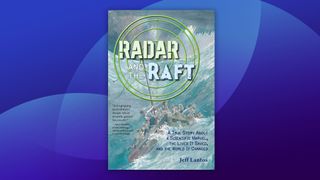
Author: Jeff Lantos
Publisher: Charlesbridge
Price: Available on Amazon for $18.99
Release date: Sept. 24, 2024
The story of radar, its inventors and contributing scientists are combined in this true story about the technology’s emergence and lifesaving uses. Written for readers around the ages of 10 to 13, "Radar and the Raft" is for those with an interest in history and technology.
Unlike many technology-based non-fiction books, this story largely focuses on the people and families behind the technology, as well as life during World War II. The book includes a combination of character storylines and multiple scientific discoveries, intriguing the reader as to how they will connect together. Toward the end of the book, these stories and inventions meet in a dramatic scene that demonstrates the lifesaving potential of science.
Grips readers through both personal stories and the evolution of technology
"Radar and the Raft" grips readers through both personal stories and the evolution of technology. By connecting the story of the Bell family’s near-death experience at sea during World War II with the story of radar’s discovery, the author has produced an engaging and informative storyline. This is a great read that explores the direct consequences of scientific discoveries.
Read more: How radar works: The technology made famous by war
Sign up for the Live Science daily newsletter now
Get the world’s most fascinating discoveries delivered straight to your inbox.
Ben Biggs is a keen and experienced science and technology writer, published book author, and editor of the award-winning magazine, How It Works. He has also spent many years writing and editing for technology and video games outlets, later becoming the editor of All About Space and then, Real Crime magazine.
- How It Works magazine
- Alexander McNamaraEditor-in-Chief, Live Science
